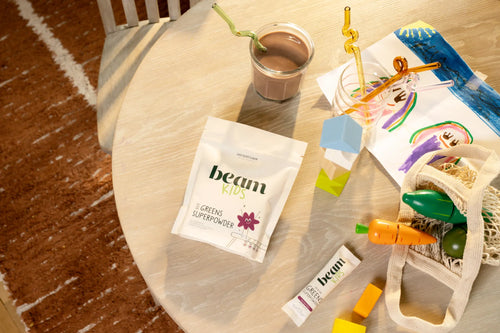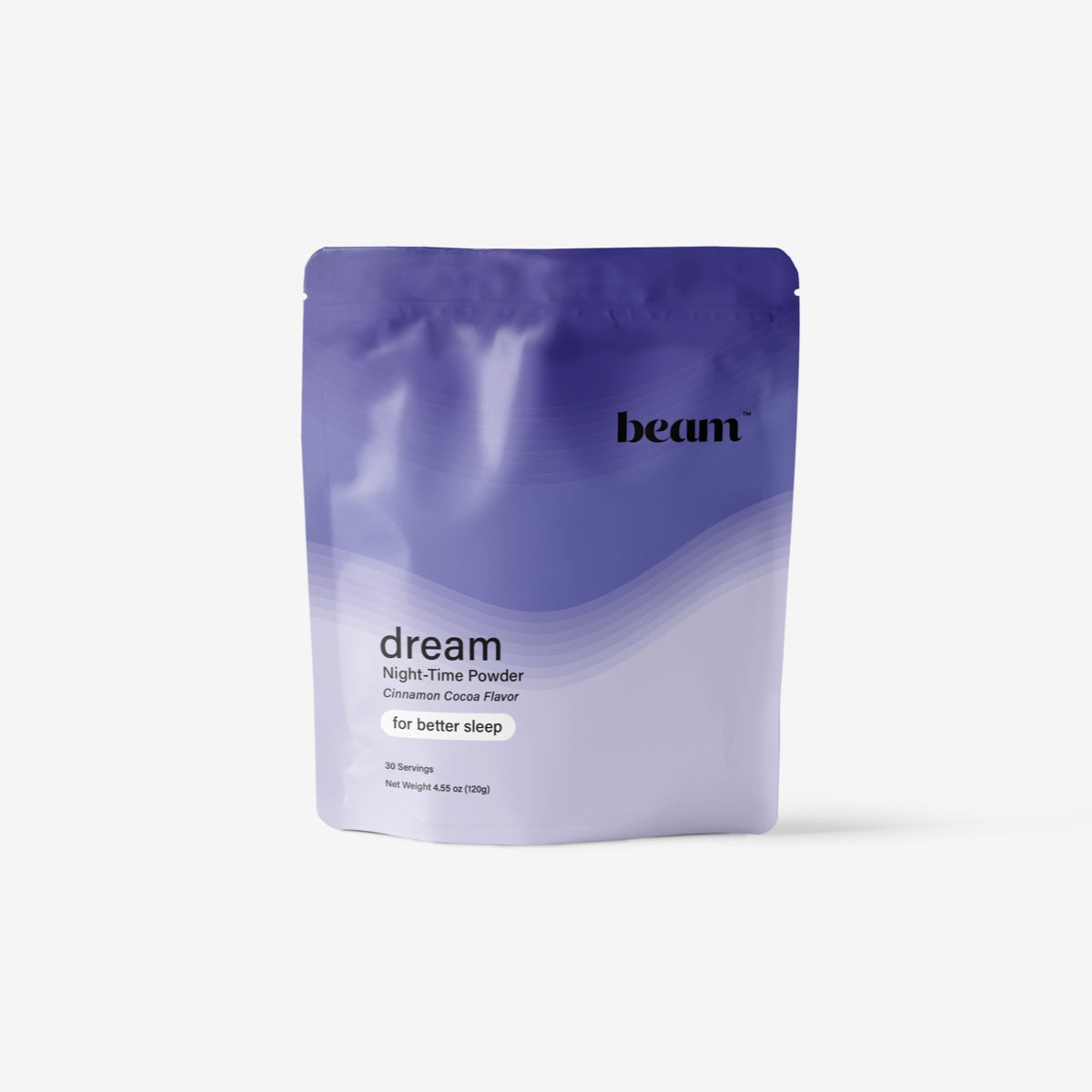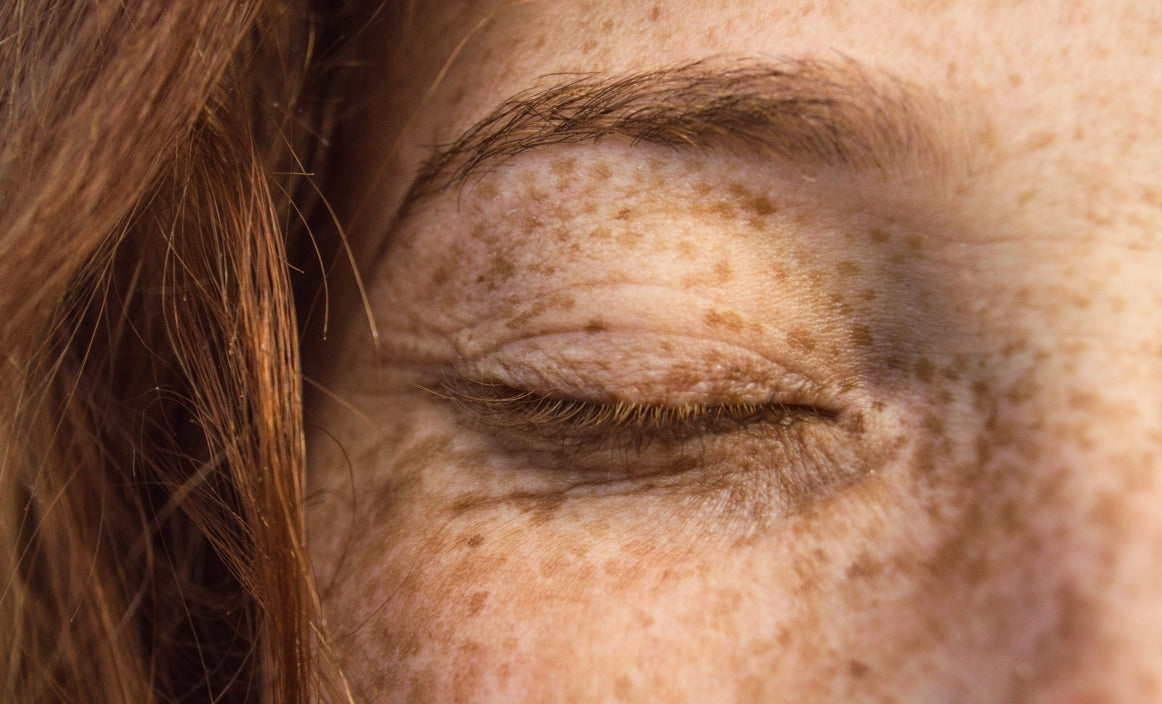Beauty sleep is real. Learn about how sleep and your skin are intrinsically connected, from your 30s and beyond.
Fact: as we age, our bodies undergo a variety of changes. One of the most obvious areas of change is the skin. A key factor that plays a role in skin health at all ages? You guessed it: sleep. Below, we break it down for all our skin-obsessed wellness fans.
The most important step in your skincare routine
Your skin is the largest organ in your body, and it’s constantly exposed to environmental stressors such as UV radiation, pollution, and temperature changes. These stressors can cause damage, which can result in inflammation, wrinkles, and other signs of aging. According to the American Academy of Sleep Medicine, a study commissioned by Estée Lauder, “demonstrated that poor sleepers had increased signs of skin aging and slower recovery from [these] environmental stressors.”
Luckily, your body has a natural repair process that takes place during sleep which helps to repair and rejuvenate the skin. Here’s how it works:
During sleep, cell turnover is at its highest. Cell turnover involves the shedding of dead skin cells and the production of new skin cells. The new cells are produced in the deep layers of the skin, and they gradually make their way to the surface, replacing the dead cells. This process is essential for maintaining healthy and youthful-looking skin.
Sleep also plays a role in the production of collagen and elastin, AKA your skin’s best friends. Collagen and elastin are two of the most important proteins for the skin, as they provide strength, firmness, and elasticity. According to Sleep Foundation, “The circadian rhythm not only regulates the body’s internal clock and tells the body when it is time to sleep, but it also regulates functions of the body’s organs, including the behavior of the skin.” Studies have shown that individuals who suffer from insomnia or other sleep disorders have a higher risk of developing wrinkles, fine lines, and sagging skin—all results of declining collagen and elastin production.
Your skin in your 30s
As we move away from our “invincible” 20s, our skin's ability to regenerate and repair itself begins to decline. This is exacerbated if you’re not getting enough sleep. At age 30, your skin is still relatively young and resilient, but the effects of a lack of sleep can create dark circles and puffiness around the eyes. Dark circles are caused by the accumulation of blood under the eyes, which can be caused by a variety of factors, including poor circulation and inflammation. During sleep, the body's natural repair process helps to reduce inflammation and improve circulation, which can help to reduce the appearance of dark circles. Inflammation has also been linked to a variety of other skin conditions including acne, eczema, and psoriasis.
Feeling dull? In your 30s, your skin can appear dull and lifeless when it is not properly hydrated and nourished. During sleep, the body's natural repair process helps to hydrate and nourish the skin, which can help to improve its overall appearance.
Your skin in your 40s
By the time you’re in your 40s, your skin's collagen and elastin production begins to decrease. The result: you’ll start to see more wrinkles, fine lines, and loss of firmness and elasticity. It is important to note that while the decline in collagen and elastin production is a natural part of aging, poor sleep habits can exacerbate these changes. Studies have shown that individuals who do not get enough sleep or do not get quality sleep are more likely to develop wrinkles and fine lines at a younger age than those who maintain healthy sleep habits. This is also the age when many people begin to notice more pronounced dark circles and puffiness under the eyes. Throw age-related changes such as hormonal fluctuations into the mix, and you can further impact the skin's health and appearance.
Your skin in your 50s
At age 50 and beyond, the skin's natural repair and rejuvenation processes slow down even more, making it even more critical to take good care of our skin. Lack of sleep can cause wrinkles to deepen and become more prominent, and the skin may also become more dry and dull. Changes such as menopause can further impact the skin's health and appearance. Additionally, at this age, many people begin to experience age spots, hyperpigmentation, and dryness, all of which can be exacerbated by poor sleep habits.
R+ R for your skin
So, how can you ensure that you’re getting the restful sleep your skin needs? One of the most important things is to maintain a consistent sleep schedule. Going to bed and waking up at the same time each day helps to regulate your body's internal clock and can make it easier to fall asleep and stay asleep.
Additionally, creating a sleep-conducive environment by keeping the bedroom dark, quiet, and cool can also help to promote restful sleep. Invest in a silk pillowcase—according to an article in Good Housekeeping, “Studies show that friction from tossing and turning causes creases in the skin, but a silky smooth surface can reduce that effect in the long run.” Our favorite tip: put a humidifier in your bedroom, it can help to hydrate your skin while you sleep.
Pro tip: consider lifestyle factors that may be impacting your sleep. For example, consuming caffeine, alcohol, or nicotine close to bedtime can interfere with our ability to fall asleep and stay asleep. These factors can also impact your skin.
Sleep has far-ranging benefits that go way beyond your skin. We've created an all-natural, gluten-free, dairy-free, non-GMO sleep supplement that's here to help you kick-start your wellness evolution (and wind down your night). Check out Dream Powder, our best selling, internet-breaking hot cocoa for bedtime. It’s clinically shown to improve your sleep so you can feel (and look) amazing. Your face will thank you.






